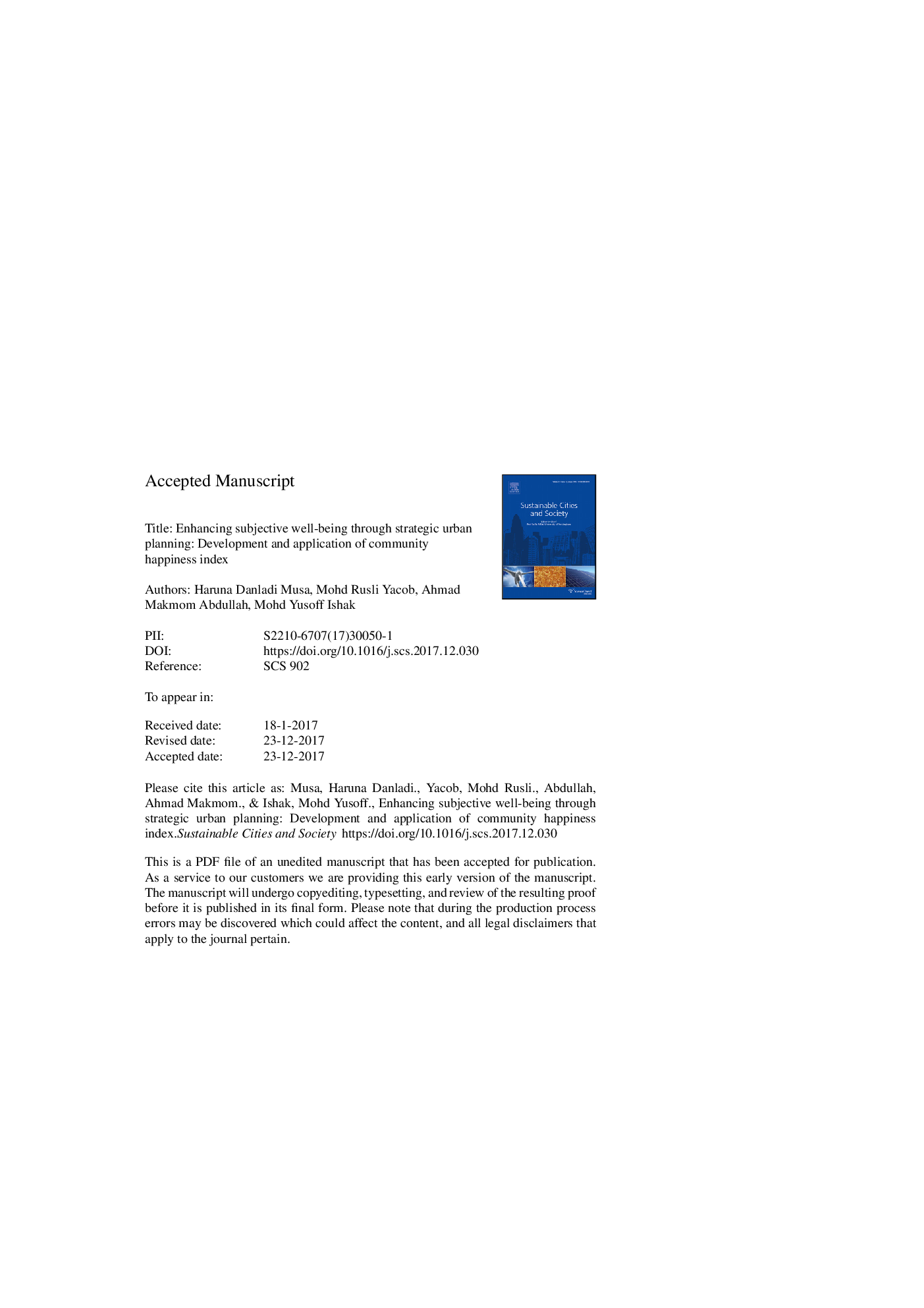| Article ID | Journal | Published Year | Pages | File Type |
|---|---|---|---|---|
| 6775369 | Sustainable Cities and Society | 2018 | 36 Pages |
Abstract
Sustainable development is practiced globally as a comprehensive strategy for promoting urban sustainability and well-being. Achieving sustainable development goals depends on the ability to monitor human well-being to track policy outcomes and the connection between ecosystem and human well-being. We developed a framework of community happiness index (CH-index) that fully integrates broad sustainability domains - human well-being and eco-environmental well-being sub-index along four sustainability dimensions (social, economic, environmental, and urban governance) to capture individual subjective perceptions of their experience of communities and development impact. The model was developed by aggregating its constituents using linear aggregation techniques based on subjective weightings using Delphi technique. A cross-sectional survey was conducted to validate the framework applicability using case study approach. The result shows that the case study Putrajaya displayed a good performance of eco-environmental well-being (Mâ¯=â¯7.313) and Human Well-being (Mâ¯=â¯6.534), moderate sustainability, and a medium-high level of community happiness (6.866) on 1-10 scale. The finding reveals that the level of community happiness depends on the existing level of sustainable urban development. The CH-index provides the planners with a new subjective well-being tool to help in-depth analysis for more targeted interventions and a baseline data to improve community happiness.
Related Topics
Physical Sciences and Engineering
Energy
Renewable Energy, Sustainability and the Environment
Authors
Haruna Danladi Musa, Mohd Rusli Yacob, Ahmad Makmom Abdullah, Mohd Yusoff Ishak,
